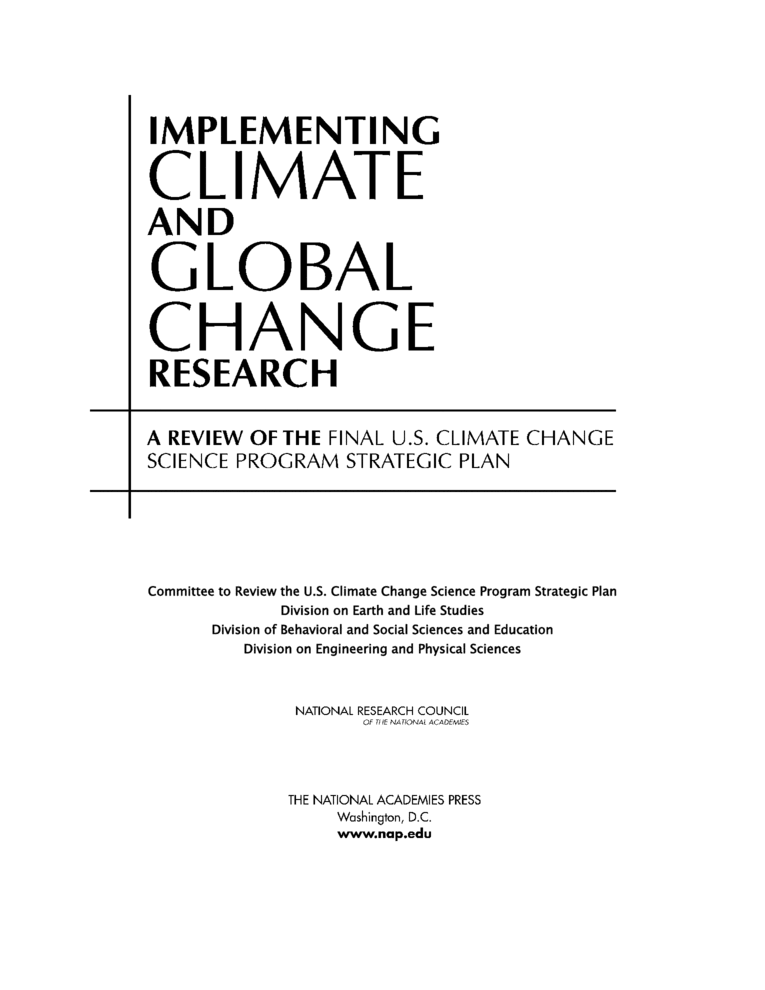The committee that wrote the report found that the proposed broadening of USGCRP's scope to address not only climate change but also other climate-related global changes is appropriate and an important step. However, the draft plan does not always acknowledge significant challenges, such as increasingly constrained budget resources, involved in meeting its goals, nor does it offer clear strategies for how such challenges could be addressed. There is also the practical challenge of maintaining clear boundaries for an expanded program.
The committee emphasized the need to identify initial steps the program would take to achieve the proposed broadening of its scope, develop critical science capacity that is now lacking, and link the production of knowledge to its use. It also stressed that without a strong governance structure that could compel reallocation of funds to serve overarching priorities, the program would likely continue as merely a compilation of efforts deriving from each member agency's individual priorities.
Broadening the program to better integrate the social and ecological sciences, inform climate change mitigation and adaptation efforts, and emphasize decision support is welcome and essential for meeting the legislative mandate for the program, the committee said. Nevertheless, implementing this wider scope requires more than incremental solutions. For instance, there is insufficient expertise within member agencies in the social and ecological sciences, and some agencies lack clear mandates to develop the needed expertise.
The report also suggests that the USGCRP plan could be strengthened by:
- offering a more coherent summary of past important accomplishments, including an assessment of successes that were possible only because of USGCRP actions;
- establishing clear processes for setting priorities and phasing in and out elements of the program;
- employing iterative processes for periodically evaluating and updating the program and its priorities; and
- more carefully defining the education, communication, and work-force development efforts that belong within the program and which efforts would be best organized by entities outside the program.
The study was sponsored by the National Oceanic and Atmospheric Administration. The National Research Council, the operating arm of the National Academy of Sciences and National Academy of Engineering, is an independent, nonprofit institution that provides science and technology advice under a congressional charter granted to the NAS in 1863.
Contacts:
Jennifer Walsh, Media Relations Officer
Shaquanna Shields, Media Relations Assistant
Office of News and Public Information
202-334-2138; e-mail news@nas.edu


No comments:
Post a Comment
prueba